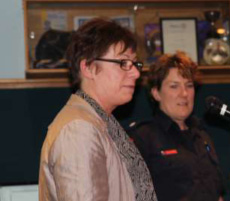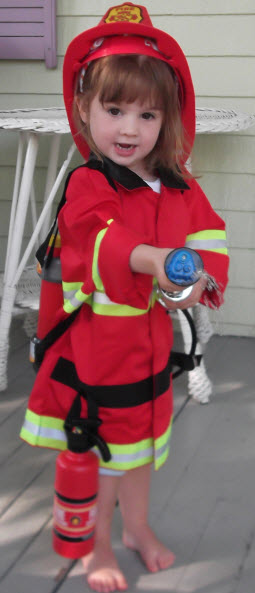 Hanlie introduced Natasha Brown, who is a specialist fire investigator who commenced her career as a volunteer fireman at BayView.
Hanlie introduced Natasha Brown, who is a specialist fire investigator who commenced her career as a volunteer fireman at BayView. Natasha listed many facts which affect all homes in NZ:
1. Most fires occur when people are sleeping – therefore a final “fire-safe” check before going to bed is recommended.
2. People with “low-mobility” crutches or wheelchairs need an unobstructed exit path in the event of having to move outside to safety. 3. Many homes leave keys on the inside of the exit door so there is no fumbling in the dark for keys if a quick exit is called for.
4. Modern homes and furnishings are made from products which are more flammable and give off more poisonous smoke than ever before – Two to Three minutes is all it takes to lose your home and family to fire.
 5. Smoke detectors are vital – they should be photoelectric – and they should be tested regularly to ensure they are working. Any smoke detector that works is better than no detector – but photoelectric detectors are best of all. The Fire Service offers free home visits, so call your fire station to arrange a free call when they are not too busy.
5. Smoke detectors are vital – they should be photoelectric – and they should be tested regularly to ensure they are working. Any smoke detector that works is better than no detector – but photoelectric detectors are best of all. The Fire Service offers free home visits, so call your fire station to arrange a free call when they are not too busy.6. 1/3 (one third) of all home fires start in the kitchen, so care in the busy cooking department is vital.
7. The Fire Service now visit schools and teach children to be “Fire Wise” and alert young people to the dangers of fires in the home.
8. Multiple fire alarms are recommended (in the event of a fire there is extra warning sounded) and also one fire alarm can set other fire alarms to sound the alarm.
9. The Hallway is the best place for your first fire alarm. Supplement with others elsewhere – the fires service will help you position them (they offer a free home service - use it !)
10. Special smoke alarms for deaf or “hearing Impaired” people are available. 11. Special smoke alarms which are “connected” and have the ability to start other smoke detectors sounding the alarm – are worth considering. 12. Electric blankets should be tested each summer and rolled (not folded) away.
13. Finally, if someone gets burnt, the affected area should be held underwater for 20 minutes.
To summarise:
** Working smoke detectors save lives ** Make an escape plan ** Get out and stay out.
To summarise:
** Working smoke detectors save lives ** Make an escape plan ** Get out and stay out.
